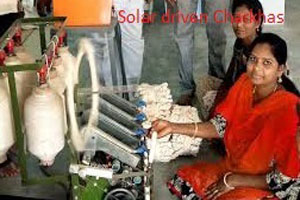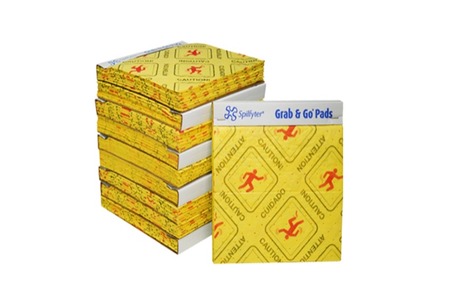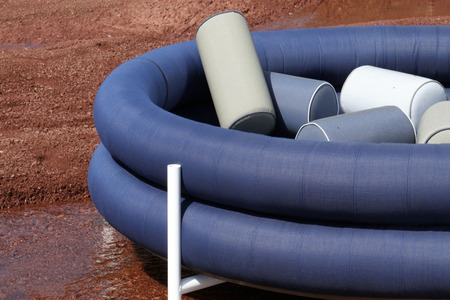
Khadi sector to ease the burden of spinners with solar charkhas
YarnsandFibers News Bureau 2016-03-14 14:00:00 – Andhra PradeshThe khadi sector is replacing the traditional hand-operated spinning wheels with solar-powered charkhas, to ease the burden of the spinners, allowing them to make use of renewable energy. The initiative, taken up by the Khadi and Village Industries Commission (KVIC), aims at reducing the drudgery of spinners, boosting productivity and improving their livelihood.
The solar-driven wheel can produce up to 75-90 hanks of yarn in eight hours as compared to the 25-30 hanks made by the hand-spun charkha. They are expecting a 300 percent rise in the yarn output through the solar-powered wheels.
Besides, the artisan can also earn Rs.350 per day as against Rs.140 on a conventional wheel, said K. Brahmajee Rao, divisional director of KVIC.
With the launch of new model charkhas, the KVIC not only focuses on doubling the production and quality of the yarn but also tapping the potential of scores of homemakers in the rural pockets, providing sustainable employment.
In addition to this, the limitation of manually-operated charkhas can be replaced by mechanised spinning, letting artisans to work at their convenience, saving time and energy.
In line with the pilot project, a total of 10 charkhas have been sourced from Gujarat-based Udyog Bharti under the Prime Minister’s Employment Generation Programme, each costing Rs.72,000.
Representatives of Udyog Bharti will provide technical expertise to the spinners, including a few troubleshooting techniques, to ensure smooth operation of the solar panel.
The solar-driven wheels have been installed in various khadi institutions located at Anakapalle, Tuni, Narasannapeta, Vemulapudi, Krishnapuram, and Visakhapatnam. Based on the artisans’ feedback, more solar-powered charkhas will be procured in a phased manner.
The plan is to get 10 solar charkhas for major khadi institutions and five for medium ones that fall in the bracket of the divisional office, KVIC, Visakhapatnam.
Market Intelligence
Ask for free sample Report

experience
Customer Base
dedicated team
Countries Served Worldwide









